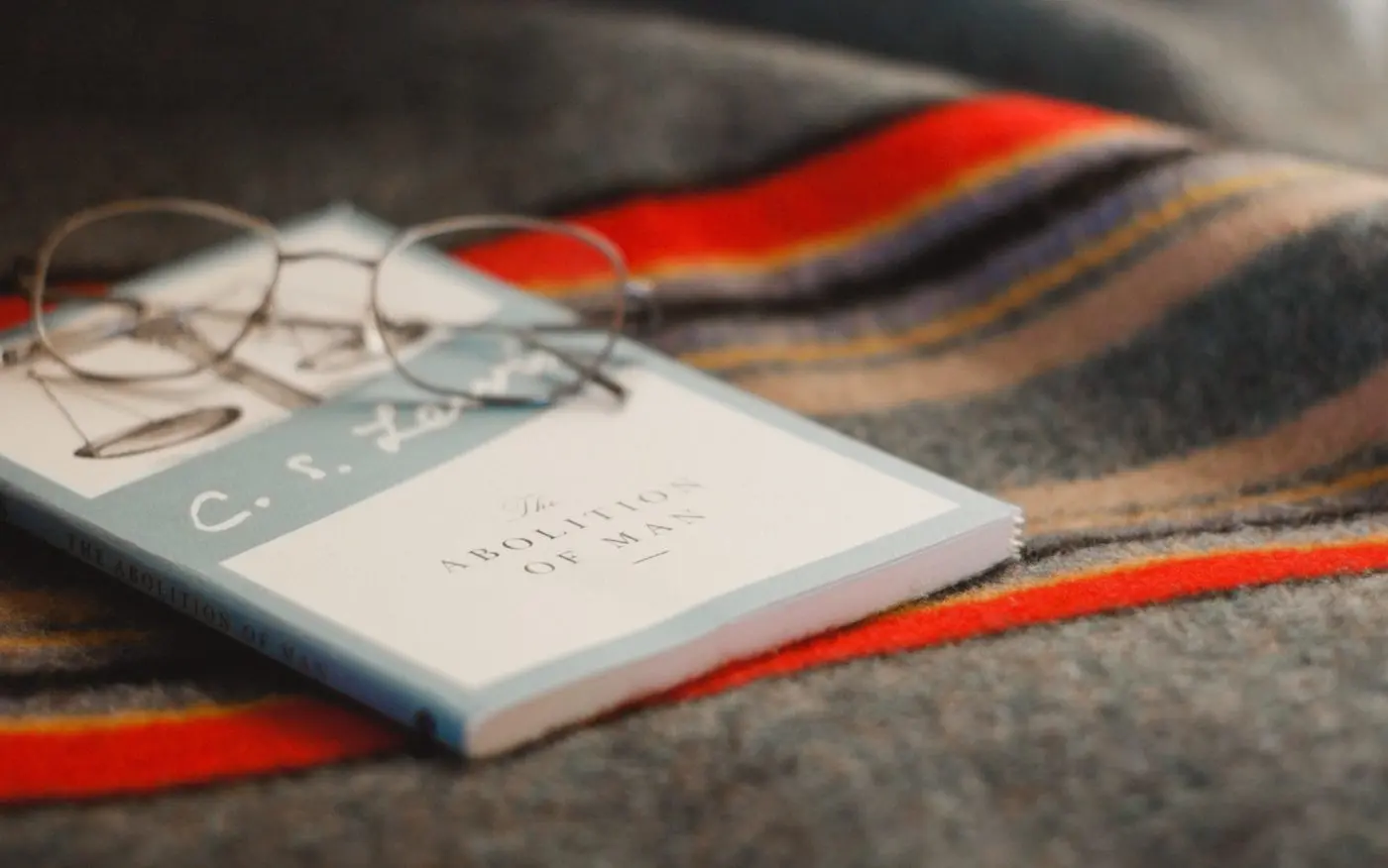C.S. Lewis is one of the most quoted writers in modern times—and for good reason. A brilliant thinker, his writing (spread across more than 30 books and dozens of essays) was powerful and succinct, raw and honest. He articulated the truths of the Christian faith in a way that resonated with many, and that few writers have rivaled.
To that end, I have collected quotes by Lewis (as many have done) over the years. Below are some of my favorites, including their sources.
Top Ten
If I find in myself a desire which no experience in this world can satisfy, the most probable explanation is that I was made for another world. (In Mere Christianity, book III, chap. 10)
I believe in Christianity as I believe that the sun has risen: not only because I see it, but because by it I see everything else. (In “Is Theology Poetry?”)
Christianity, if false, is of no importance, and if true, of infinite importance. The only thing it cannot be is moderately important. (In “Christian Apologetics,” in God in the Dock)
There are only two kinds of people in the end: those who say to God, “Thy will be done,” and those to whom God says, in the end, “Thy will be done.” All that are in Hell, choose it. Without that self-choice there could be no Hell. No soul that seriously and constantly desires joy will ever miss it. Those who seek find. To those who knock it is opened. (In The Great Divorce, chap. 9)
Look for yourself, and you will find in the long run only hatred, loneliness, despair, rage, ruin, and decay. But look for Christ, and you will find Him, and with Him everything else thrown in. (In Mere Christianity, book IV, chap. 11)
God cannot give us a happiness and peace apart from Himself, because it is not there. There is no such thing. (In Mere Christianity, book II, chap. 3)
The Christian does not think God will love us because we are good, but that God will make us good because He loves us. (In Mere Christianity, book II, chap. 5)
If you read history you will find that the Christians who did most for the present world were precisely those who thought most of the next. It is since Christians have largely ceased to think of the other world that they have become so ineffective in this. (In Mere Christianity, book III, chap. 10)
There are no ordinary people. You have never talked to a mere mortal. Nations, cultures, arts, civilizations—these are mortal, and their life is to ours as the life of a gnat. But it is immortals whom we joke with, work with, marry, snub and exploit—immortal horrors or everlasting splendors. This does not mean that we are to be perpetually solemn. We must play. But our merriment must be of that kind (and it is, in fact, the merriest kind) which exists between people who have, from the outset, taken each other seriously—no flippancy, no superiority, no presumption. (In “The Weight of Glory”)
It would seem that Our Lord finds our desires not too strong, but too weak. We are half-hearted creatures, fooling about with drink and sex and ambition when infinite joy is offered us, like an ignorant child who wants to go on making mud pies in a slum because he cannot imagine what is meant by the offer of a holiday at the sea. We are far too easily pleased. (In “The Weight of Glory”)
Listen to Ken Boa teach on his favorite quotes
Honorable Mentions
A man can no more diminish God’s glory by refusing to worship Him than a lunatic can put out the sun by scribbling the word, “darkness” on the walls of his cell. (In The Problem of Pain, chap. 3)
Humans are amphibians—half spirit and half animal. … As spirits they belong to the eternal world, but as animals they inhabit time. (In The Screwtape Letters, letter 8)
Because free will, though it makes evil possible, is also the only thing that makes possible any love or goodness or joy worth having. (In Mere Christianity, book II, chap. 3)
Aim at heaven and you will get earth thrown in. Aim at earth and you get neither. (In Mere Christianity, book III, chap. 10)
If you look for truth, you may find comfort in the end; if you look for comfort you will not get either comfort or truth—only soft soap and wishful thinking to begin with and, in the end, despair. (In Mere Christianity, book I, chap. 5)
Human history … [is] the long terrible story of man trying to find something other than God which will make him happy. (In Mere Christianity , book II, chap. 3)
It may be hard for an egg to turn into a bird: it would be a jolly sight harder for it to learn to fly while remaining an egg. We are like eggs at present. And you cannot go on indefinitely being just an ordinary, decent egg. We must be hatched or go bad. (In Mere Christianity, book IV, chap. 8)
I didn’t go to religion to make me happy. I always knew a bottle of Port would do that. If you want a religion to make you feel really comfortable, I certainly don’t recommend Christianity. (In “Answers to Questions on Christianity,” in God in the Dock)
Everyone has noticed how hard it is to turn our thoughts to God when everything is going well with us. … While what we call “our own life” remains agreeable, we will not surrender it to Him. What, then, can God do in our interests but make “our own life” less agreeable to us, and take away the plausible sources of false happiness? (In The Problem of Pain, chap. 6)
Nothing that you have not given away will ever be really yours. (In Mere Christianity, book IV, chap. 11)
Joy is the serious business of Heaven. (In Letters to Malcolm)
Has this world been so kind to you that you should leave with regret? There are better things ahead than any we leave behind. (In Letters to an American Lady)
Reason is the natural organ of truth; but imagination is the organ of meaning. (In “Bluspels and Flalansferes: A Semantic Nightmare”)
If the whole universe has no meaning, we should never have found out that it has no meaning: just as, if there were no light in the universe and therefore no creatures with eyes, we should never know it was dark. Dark would be without meaning. (In Mere Christianity, book II, chap. 1)
Friendship is unnecessary, like philosophy, like art …. It has no survival value; rather it is one of those things that give value to survival. (In The Four Loves, “Friendship” chapter)
Friendship … is born at the moment when one man says to another “What! You too? I thought that no one but myself …” (In The Four Loves, “Friendship” chapter)
Friendship is not a reward for our discrimination and good taste in finding one another out. It is the instrument by which God reveals to each the beauties of all the others. (In The Four Loves, “Friendship” chapter)
The task of the modern educator is not to cut down jungles, but to irrigate deserts. (In The Abolition of Man)
We are not living in a world where all roads are radii of a circle and where all, if followed long enough, will therefore draw gradually nearer and finally meet at the centre: rather in a world where every road, after a few miles, forks into two, and each of those into two again, and at each fork, you must make a decision. (In The Great Divorce, preface)
We all want progress … but if you’re on the wrong road, progress means doing an about-turn and walking back to the right road, and in that case, the man who turns back soonest is the most progressive. (In Mere Christianity, book I, chap. 5)
Of all tyrannies a tyranny sincerely exercised for the good of its victims may be the most oppressive. (In “The Humanitarian Theory of Punishment,” in God in the Dock)
The safest road to hell is the gradual one – the gentle slope, soft underfoot, without sudden turnings, without milestones, without signposts. (In The Screwtape Letters, letter 12)
A young man who wishes to remain a sound Atheist cannot be too careful of his reading. (In Surprised by Joy, chap. XII—“Guns and Good Company”)
What I call my “self” now is hardly a person at all. It’s mainly a meeting place for various natural forces, desires, and fears, etcetera, some of which come from my ancestors, and some from my education, some perhaps from devils. The self you were really intended to be is something that lives not from nature but from God. (In “Beyond Personality,” BBC Radio Talk, 21 March 1944)
Even in literature and art, no man who bothers about originality will ever be original: whereas if you simply try to tell the truth (without caring twopence how often it has been told before) you will, nine times out of ten, become original without ever having noticed it. (In Mere Christianity, book IV, chap. 11)
Miracles … are a retelling in small letters of the very same story which is written across the whole world in letters too large for some of us to see. (In “Miracles,” in God in the Dock)
A man who is eating or lying with his wife or preparing to go to sleep in humility, thankfulness, and temperance, is, by Christian standards, in an infinitely higher state than one who is listening to Bach or reading Plato in a state of pride. (In a letter to Bede Griffiths, 16 April 1940)
There is no uncreated being except God. God has no opposite. (In “The Devil,” in The Joyful Christian)
This is one of the miracles of love; it gives … a power of seeing through its own enchantments and yet not being disenchanted. (In A Grief Observed, chap. 4)
What we call Man’s power over Nature turns out to be a power exercised by some men over other men with Nature as its instrument. (In The Abolition of Man)
Imagine yourself as a living house. God comes in to rebuild that house. At first, perhaps, you can understand what He is doing. He is getting the drains right and stopping the leaks in the roof and so on; you knew that those jobs needed doing and so you are not surprised. But presently He starts knocking the house about in a way that hurts abominably and does not seem to make any sense. What on earth is He up to? The explanation is that He is building quite a different house from the one you thought of—throwing out a new wing here, putting on an extra floor there, running up towers, making courtyards. You thought you were being made into a decent little cottage: but He is building a palace. He intends to come and live in it Himself. (In Mere Christianity, book IV, chap. 9)
The more we get what we now call “ourselves” out of the way and let Him take us over, the more truly ourselves we become. He invented … all the different men that you and I were intended to be. … It is when I turn to Christ, when I give myself up to His Personality, that I first begin to have a real personality of my own. (In Mere Christianity, book IV, chap. 11)



